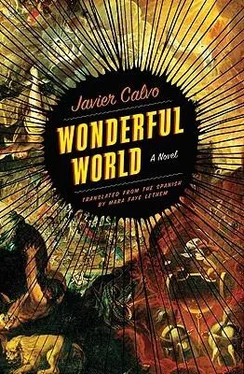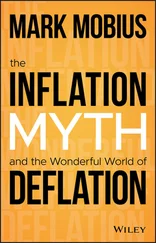“I don't know anyone named Koldo Cruz,” says Giraut. “As I stated in my previous declarations. I never even heard that name before this trial. I have no knowledge of my father's business operations. Beyond the accounting ledgers and records I received from Mr. Fonseca. My father and I weren't very close.” His voice starts to show nuances of perplexity and some degree of filial confusion. “Although I would have liked to know him better, of course.”
“There is no proof.” The definitely non-Caucasian lawyer speaks indolently in front of his microphone. With his pen between his teeth. With his shirtsleeves rolled up or, maybe, with one of those shirts that come rolled up. With one of those hems sewn into the sleeves. “There are no serious facts because there are no facts. There are no facts to refute. There are no fingerprints of any kind on that letter. The security camera at Mr. Cruz's home did not record any image of my client. The prosecution is basing his argument on mere conjecture. Not legal evidence, in short.”
When the Hindustani or Semitic lawyer finishes his intervention there is none of the indistinct whispering the audience always does in courtrooms on television shows and in the movies. That whispering that always seems to suggest a mix of shock and malicious conjecturing. The only sounds coming from the audience are sporadic coughs and the clearing of throats and the occasional rustle produced by someone changing position on the benches.
“The witness Lucas Giraut may return to his seat,” says the clerk's voice amplified by the speaker system. “The defense calls Estefanía Giraut to the stand.”
A rustling of papers and pages turning spreads through the courtroom. Lucas Giraut enters the defendant's area through the section of the railing that functions as a door and closes it behind him. The new witness silently walks up the two steps to the witness stand. With her dark glasses. With her picture hat. With a stole over her shoulders. With the horrible, static mask that is her face sticking out under the glasses and the hat. Sections of unnaturally taut and shiny skin. As if instead of skin she had some kind of plastic substance that imitates skin in some old horror movie. One of those old horror movies from when special effects were in their infancy.
Fanny Giraut sits in the witness chair of the district courtroom. Giraut thinks that his mother has just placed her butt on the surface of the chair that is still warm from his own butt. For some reason the idea gives him some sort of small involuntary shiver down his back. Estefanía “Fanny” Giraut looks out at the audience area. She does not clear her throat. She does not cross her legs. She doesn't do any of the semiconscious gestures or nervous noises associated with someone who has just taken the witness stand. Her face resides in a kingdom beyond all expressiveness.
“The defense may begin its questioning,” say the speakers in a synthetic version of the clerk's voice. “The witness is reminded that she is under oath.”
In the middle rows of the public, without the shield of any noteworthy architectural element, Eric Yanel and Marcia Parini are intertwined in a position that suggests Elizabethan metaphors about beasts with two backs. With Yanel's hands exploring remote labyrinths of lace and silk. Technically speaking, Eric Yanel and Marcia Parini have been living together in Marcia's apartment in the Palau de la Mar Fosca for a week. Now, when he gets into his bed next to Iris Gonzalvo, Giraut usually can feel a certain vibrating in the beams and supporting walls of the ducal palace. Accompanied by stereotypically passionate shrieks from the apartment downstairs. Like those stereotypical shrieks and vibrations heard through the walls in sex comedies. Now it is Giraut's lawyer who opens the section of the railing with hinges that leads to the defendant's area and closes it behind him. With a bundle of papers in his hand. With his tie indolently loosened around his collar. With no piece of clothing specifically appropriate to a lawyer over his shirt with the rolled-up sleeves.
“Your Honor.” The lawyer is rolling the bundle of papers in his hand. Creating a cylinder. “To continue I would like to demonstrate that Estefanía Giraut conspired and used illegal methods to prevent her late husband's last wishes from being carried out. In the sense that he designated his son as the primary shareholder in his corporation. I propose to demonstrate that Mrs. Giraut”—he points at Fanny Giraut with the paper cylinder—“met with her lawyer the day after her husband died to locate all existing copies of his will. And that, faced with the impossibility of replacing one of the copies, decided to begin a series of international operations designed to raise capital for an aggressive buyout of her son. None of these operations were authorized by the primary shareholder. Instead my client's signature was systematically forged. We attach a copy of these forgeries, Your Honor. My client was relegated to a position devoid of decision-making power while operations were carried out behind his back and without his consent.”
The non-Caucasian lawyer points alternately at Fanny Giraut and at Fonseca with his rolled-up bundle. Using it in a way that makes you think of a scepter or a ceremonial staff. Giraut extends his neck from his area of the room in order to see the place where Fonseca is sitting. Fonseca's face is very pale and his jaw is tense in such a way that on his cheek a tense muscle trembles. The movements of the veins on his temples can't be made out clearly because of the distance.
“We will show,” continues the lawyer, “that she tried to bribe and blackmail Mr. Lucas Giraut into giving up his stock. That she never gave him a chance. That there are documents supposedly written by my client that authorize illegal transactions to civil servants in the Bavarian government. Documents designed to implicate my client in cases of international corruption. That it was Mrs. Estefanía Giraut and her lawyer who deposited money into the Swiss bank accounts of various Bavarian politicians in order to obtain the concession for the restoration of an important public building. The Speyer Cathedral. And that, in the end, LORENZO GIRAUT, LTD., isn't qualified to take on that concession. That after a summary inspection, it's not licensed to operate in most of the countries that it operates in. That it is no more than a series of empty offices in various European capitals. With all their calls forwarded. We've looked into it, Your Honor. Empty warehouses. Without any consultants on the payroll. Without any international experts. Without any other executive positions than the one held by Mr. Chicote. Whose job seems to be contacting the payees of the deposits to the Swiss bank accounts.” He unrolls the bundle of papers in his hand. He smooths it out with a few smacks of his palm. Then he holds it up so everyone in the courtroom can see it. Even though they're mostly smoothed out, the pages maintain a certain curl caused by the inertia of the materials. “And now we will present this evidence to the Court.”
A court clerk takes the bundle from the lawyer's hand and distributes the different copies among the members at the table. The copy that he places on the desk of the fragile-skinned and copiously freckled lawyer for the plaintiff has a business card attached that reads: “BOCANEGRA GROUP, LTD., LEADERS IN THE ENTERTAINMENT SECTOR.” With a cordial handwritten message on the back. The judge flips through his copy of the evidence dossier with his glasses almost at the tip of his nose and a complex system of wrinkles on his disproportionate forehead that look like isobars on a meteorological map. Then he takes off his glasses and looks at Fanny Giraut with an expression bordering on annoyance.
“Please respond to the accusations we have just heard, Mrs. Giraut.” The isobars on the judge's forehead shake like low-pressure lines in the middle of a storm. The kind of forehead shaking usually associated with the elderly. “Since it seems the defense has just changed the course of these proceedings.”
Читать дальше












